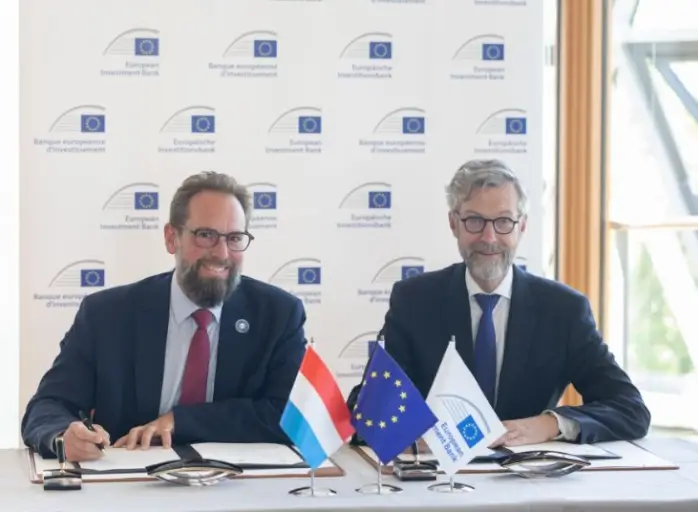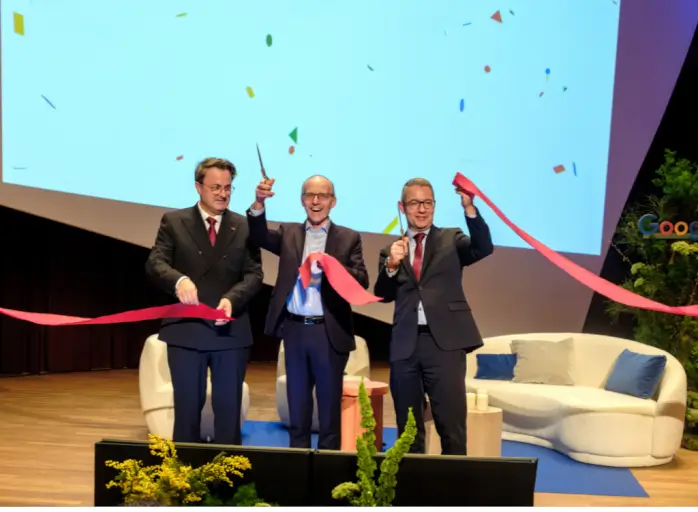

SnT: Excellent science, impactful partnerships
The university’s Interdisciplinary Centre for Security, Reliability and Trust (SnT) fuels Luxembourg’s data economy with science-based solutions to data-related business challenges.
 Lena Mårtensson
Lena Mårtensson
The Interdisciplinary Centre for Security, Reliability and Trust (SnT) was set up as the University of Luxembourg’s first interdisciplinary centre in 2009 with a clear vision: to play an instrumental role in Luxembourg by boosting R&D investments leading to economic growth and highly qualified talent.
We combine excellent research with working with industry.
Carlo Duprel, SnT
“Universities are still accused of being isolated ivory towers, and sometimes rightly so. However, the SnT stands out for its strong involvement in the local ecosystem. We combine excellent research – the University of Luxembourg ranks among the world’s 150 top universities for computer science and top 10 for software engineering research – with working with industry,” underlines Carlo Duprel, the centre’s Head of Tech Transfer. The focus research areas, which are fintech, space systems, cybersecurity and autonomous systems, reflect sectors of key strategic importance for the national economy.

A win-win model for strategic partnerships
SnT’s partnership programme, which today includes over 65 partners, is at the heart of this endeavour. Its collaborative, demand-driven research model is based on strategic partnerships that bring added value to researchers and industry partners alike. “While our partners want to solve their business challenges, we want to do market-relevant research resulting in scientific publications,” says Dr Duprel. “Our unique model enables us to achieve both. We only engage in collaborations that have a real scientific interest for us and where we can be of real use to our partners.”
The scope of the programme spans from technology concept development to prototype demonstration. “A typical collaborative project lasts three years, and in many cases, our partner companies need only a few additional months to refine the concept before they can commercialise it,” explains SnT’s Partnership Development Officer, Barbara Grau. She describes the collaboration model as a win-win relationship. “Our partners have access to state-of-the-art technology, high-level expertise and concrete project outcomes. In exchange, they give us access to data and enable us to test our research in real-life environments.”
While our partners want to solve their business challenges, we want to do market-relevant research resulting in scientific publications. Our unique model enables us to achieve both.
Carlo Duprel, SnT
Most projects are based on a 50-50 model where each of the partners carries 50% of the costs and the project results are owned jointly. Many projects receive co-funding from the state or the Luxembourg National Research Fund.
SnT works with different types of partners, ranging from large industrial groups and financial institutions to SMEs, startups and public bodies. Cooperations include, for example, a project with the retail bank BGL BNP Paribas aimed at creating an AI metamodel tool to effectively monitor AI solutions in a fast changing financial, regulatory and economic setting. Another project with the electromechanical solutions developer Cebi Group aimed to implement industry 4.0 solutions in its production line. “Many partnerships are recurrent: as soon as one collaboration comes to an end, our partners want to launch the next one,” says Ms Grau.
Developing talent for the data economy
This type of successful collaboration does not happen by coincidence. “We take great care to employ people – professors as well as PhD students – who have a genuine desire to work with industry,” Dr Duprel points out. The PhD students involved in joint R&D projects typically spend half their time at SnT and the other half at the partner’s premises, which contributes to giving them an in-depth understanding of business needs.
“The PhD students, who work under the supervision of more experienced researchers, are a main success factor,” says Ms Grau. “We hire a PhD candidate for each project with a profile that matches the specific R&D topics. The selection process is done together with the partner.”
The PhD students, who work under the supervision of more experienced researchers, are a main success factor.
Barbara Grau, SnT
“Today we have around 200 PhD students from over 50 different countries, half of whom are working in collaborative projects. Around 40% of them stay in Luxembourg. In many cases, the companies are so happy with the PhD students that they recruit them once the project ends and they have finished their PhD,” says Dr Duprel. “This means that SnT also contributes to the Luxembourg data economy with a steady influx of highly skilled talents.”
Photo credits: Luxinnovation/Jessica Theis








